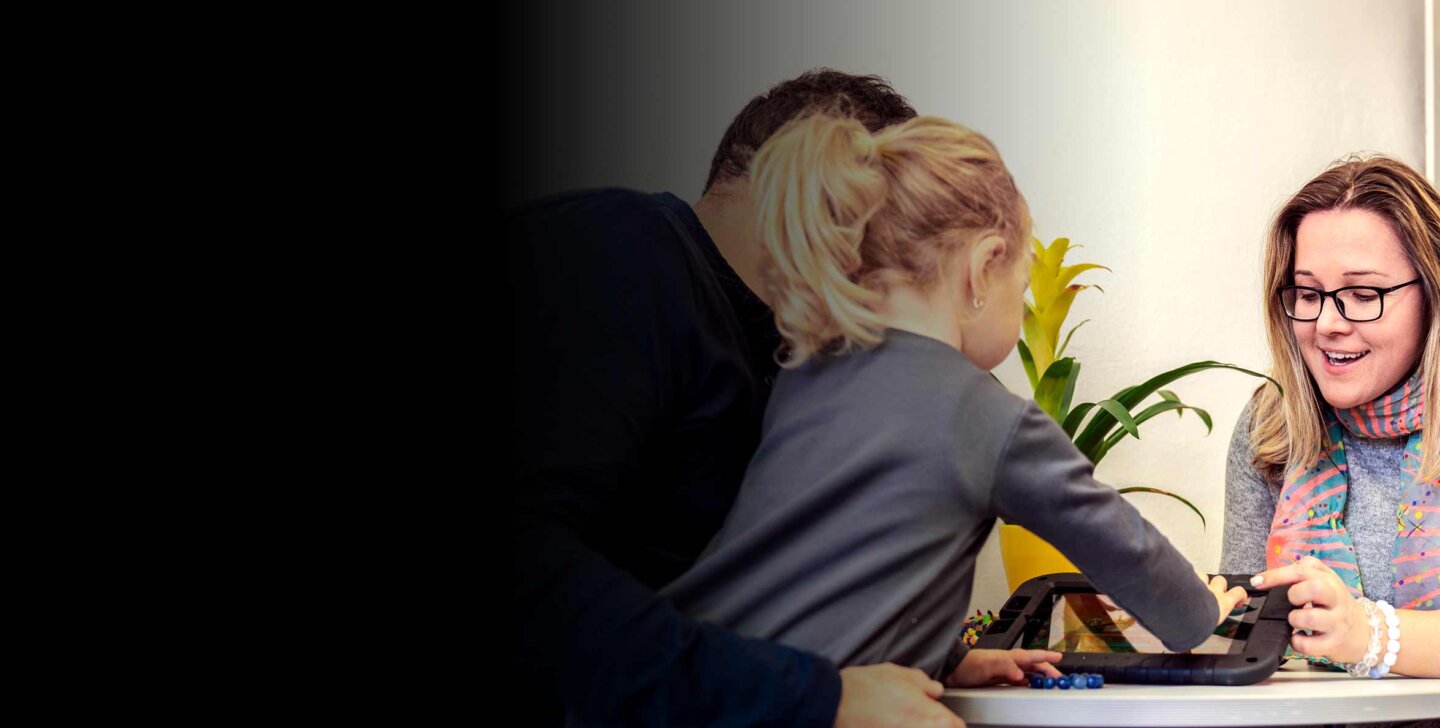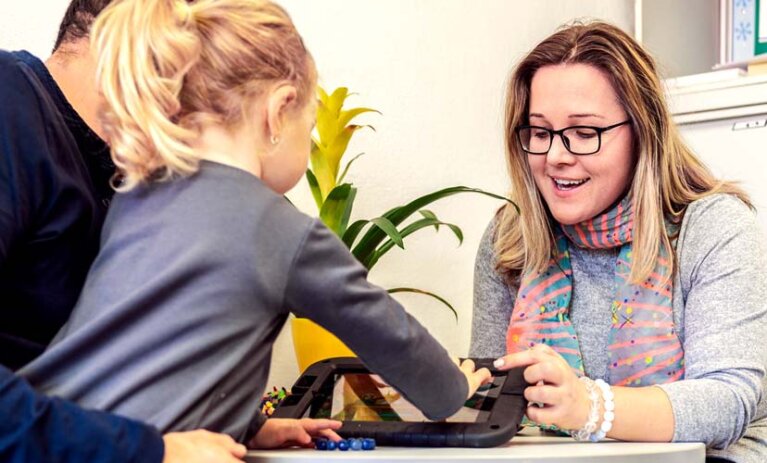

Master of Counselling and Psychotherapy
Master of Counselling and Psychotherapy
Acquire the insight to create trust and growth

Overview
The Master of Counselling and Psychotherapy course provides students with advanced professional knowledge, skills and expertise, from traditional and contemporary fields of counselling. Through counsellor training and supervision studies, students develop the foundations for a sustainable approach to counselling and psychotherapy practice, based on technical and theoretical integration.
Students of this course become committed thinkers applying theoretical knowledge to solve real world issues, with an appreciation for multiple perspectives, and a sense of critical consciousness and agency. Students effectively apply advanced counselling skills while conducting staged counselling sessions, case conceptualisation, trauma informed practice, and alternative modes of working with clients (such as video conferencing and telephone), to improve therapeutic effectiveness with diverse population groups in Australia, including Aboriginal and Torres Strait Islander peoples.
Our Master of Counselling and Psychotherapy is accredited by PACFA, the Psychotherapy and Counselling Federation of Australia and the Australian Counselling Association (ACA). Graduates who undertake ongoing professional development and clinical supervision requirements are eligible to be listed on the Australian Register of Counsellors and Psychotherapists (ARCAP), an independent national register of qualified counsellors and psychotherapists.
This course has been accredited by ACAP under its self-accrediting authority.

What you'll learn
Expertise in human behaviour forms the foundation of all our courses including our Master of Counselling and Psychotherapy.
EXPLORE WITH AN APPLIED FOCUS:
- Counselling in Multicultural Populations
- Ethical Practice
- Contemporary Counselling
- Mental Health and Wellbeing Practices

Potential Careers
Once you graduate from the Master of Counselling and Psychotherapy, you will open doors to a range of possible career opportunities. Listed below are a few typical roles you could consider.
-
Crisis Counsellor
-
Trauma-Informed Specialist
-
Mental Health Practitioner
-
Grief Counsellor
-
Family Violence Counsellor
Course structure
The Master of Counselling and Psychotherapy course is comprised of 16 units, which are level 600 units.
The course duration is 2 years full time or up to 6 years part time. For more information on the recommended course sequence click here.
Level: 600 level core
Credit points: 6
Unit Description:
This unit advances students’ understanding of self and their development, and the impact of these on their professional development as counsellors and psychotherapists. Students are provided with the opportunity to develop and apply foundational counselling skills and processes. Significant emphasis is placed on building students’ self-awareness and critical reflexivity, as they begin developing an evolving professional identity as counsellors and psychotherapists.
Learning Outcomes:
On successful completion of this unit, students will be able to:
a. Critically review, interpret, integrate, synthesise and apply advanced foundational counselling skills and processes.
b. Exercise adaptability and judgment when critically analysing, evaluating and applying knowledge and skills to their evolving professional identity as counsellors and psychotherapists.
c. Critically apply self-awareness and self-reflexivity to sustain effective and ethical practice as counsellors and psychotherapists in training.
d. Effectively demonstrate professional knowledge and integrated understanding to communicate ideas at an advanced academic level, using contemporary communication approaches.
Learning and Teaching Process:
The workload for this unit is 12 hours per week.
Special Provisions:
Students will attend an on campus workshop of 16 hours in this unit.
Level: 600 level core
Credit points: 6
Unit Description:
This unit is designed to provide students with a thorough grounding in major paradigms associated with counselling and psychotherapy. Students critically analyse the underlying structure of different therapeutic practices. They begin the process to identify specific counselling and psychotherapy approaches that resonate with their own developing framework of practice.
Learning Outcomes:
On successful completion of this unit, students will be able to:
a. Critically review, interpret, integrate, synthesise knowledge of major paradigms associated with counselling and psychotherapy.
b. Exercise adaptability and judgment when critically analysing, evaluating and applying the underlying structure of different therapeutic practices.
c. Critically apply self-awareness and self-reflexivity to identify specific counselling and psychotherapy approaches that resonate with their own developing framework of practice.
d. Effectively demonstrate professional knowledge and integrated understanding to communicate ideas at an advanced academic level, using contemporary communication approaches.
Learning and Teaching Process:
The workload for this unit is 12 hours per week.
Special Provisions:
Students will attend an on campus workshop of 16 hours in this unit.
Level: 600 level core
Credit points: 6
Corequisites: COUN6103, COUN6104
Students may enrol into 6103,6104 and 6111 (but not 6111 on its own first)
Unit Description:
This unit provides students with a conceptual framework for developing cultural awareness, sensitivity and responsiveness when working effectively and ethically with multicultural individuals, groups and communities. Through their learnings students develop and demonstrate their knowledge and understanding of responding ethically to diversity irrespective of personal bias and cultural stereotypes. Cultural conceptions of mental health are studied, including the implications for a person’s mental health when they are part of a minority, or stigmatised group in a society.
Learning Outcomes:
On successful completion of this unit, students will be able to:
a. Critically review, interpret, integrate, synthesise knowledge for developing cultural awareness, sensitivity and responsiveness when working effectively and ethically with multicultural individuals, groups and communities.
b. Exercise adaptability and judgment when critically analysing, evaluating and applying cultural conceptions of mental health in their practice as counsellors and psychotherapists in training.
c. Critically apply self-awareness and self-reflexivity to respond ethically to diversity irrespective of personal bias and cultural stereotypes.
d. Effectively demonstrate professional knowledge and integrated understanding to communicate ideas at an advanced academic level, using contemporary communication approaches.
Learning and Teaching Process:
The workload for this unit is 12 hours per week.
Special Provisions:
Students will attend an on campus workshop of 16 hours in this unit.
Level: 600 level core
Credit points: 6
Prerequisites: COUN6103, COUN6104
Co-requisites: COUN6111
Unit Description:
This unit develops students’ knowledge and understanding of legal and ethical dilemmas and ethical issues critical to counselling and psychotherapy. Students gain a working knowledge of counsellor and psychotherapist responsibilities with regards to ethical principles of practice and ethical decision-making models and processes. Students interrogate Codes of Ethics, Codes of Conduct and relevant professional and legal requirements and apply ethical sensitivity when practising ethically in counselling and psychotherapy.
Learning Outcomes:
On successful completion of this unit, students will be able to:
a. Critically review, interpret, integrate, synthesise knowledge of ethical principles of practice and ethical decision-making models and processes.
b. Exercise adaptability and judgment when critically analysing, evaluating and applying ethical sensitivity to legal and ethical dilemmas.
c. Critically apply self-awareness and self-reflexivity when practising ethically in counselling and psychotherapy.
d. Effectively demonstrate professional knowledge and integrated understanding to communicate ideas at an advanced academic level, using contemporary communication approaches.
Learning and Teaching Process:
The workload for this unit is 12 hours per week.
Special Provisions:
Students will attend an on campus workshop of 16 hours in this unit.
Level: 600 level core
Credit points: 6
Prerequisites: COUN6103, COUN6104, COUN6111
Unit Description:
This unit provides students with foundational knowledge and skills necessary to develop mental health literacy and culturally located meanings of mental health and wellbeing. Students develop an understanding of the recovery model of practice and learn to identify important characteristics of major mental health and wellbeing conditions as defined by the Diagnostic and Statistical manual of Mental Disorder, Fifth Edition, Text Revised (DSM-5-TR; 2022).
Students develop self-awareness and self-reflexivity develop their understanding and application of case conceptualisation and informed evidence-based counselling interventions for mental health conditions. They demonstrate their in-depth knowledge and skill in applying risk assessments for self-harm and risk of harm to others, and to work ethically with clients who present with suicidal ideation and behaviours.
Learning Outcomes:
On successful completion of this unit, students will be able to:
a. Critically review, interpret, integrate, synthesise knowledge and skills necessary to develop mental health literacy and culturally located meanings of mental health and wellbeing.
b. Exercise adaptability and judgment when critically when identifying and examining important characteristics of major mental health and wellbeing conditions.
c. Critically apply self-awareness and self-reflexivity when developing their understanding of mental health conditions.
d. Effectively demonstrate professional knowledge and integrated understanding to communicate ideas at an advanced academic level, using contemporary communication approaches.
Learning and Teaching Process:
The workload for this unit is 12 hours per week.
Special Provisions:
Students will attend an on campus workshop of 16 hours in this unit.
Level: 600 level core
Credit points: 6
Prerequisites: COUN6103, COUN6104, COUN6111
Unit Description:
Building on COUN6103 Person and Practice of the Therapist, this unit is based on the common factors approach. Students will examine and critically analyse research on the counsellor-client alliance and therapeutic effectiveness. Students engage in self reflexivity as they apply advanced micro-skills, therapeutic strategies and interventions within an integrative perspective.
Learning Outcomes:
On successful completion of this unit, students will be able to:
Learning and Teaching Process:
The workload for this unit is 12 hours per week.
Special Provisions:
Students will attend an on campus workshop of 16 hours in this unit.
Level: 600 level core
Credit points: 6
Prerequisites: COUN6103, COUN6104, COUN6111
Unit Description:
This unit explores the contemporary applications of group work in counselling in a multicultural world at an advanced level. Students examine group structure, processes, dynamics and diversity that may occur in heterogeneous groups in order to work productively together. Through self-awareness and self-reflexivity students advance their understanding of ethical principles, practice, when co-leading and leading multicultural groups.
Learning Outcomes:
On successful completion of this unit, students will be able to:
a. Critically review, interpret, integrate, synthesise and apply knowledge of contemporary applications of group work in counselling.
b. Exercise adaptability and judgment when examining group structure, processes, dynamics and diversity that may occur in heterogeneous groups.
c. Critically apply self-awareness and self-reflexivity to advance their understanding of ethical principles, practice, when co-leading and leading multicultural groups.
d. Effectively demonstrate professional knowledge and integrated understanding to communicate ideas at an advanced academic level, using contemporary communication approaches.
Learning and Teaching Process:
The workload for this unit is 12 hours per week.
Special Provisions:
Students will attend an on campus workshop of 16 hours in this unit.
Level: 600 level core
Credit points: 6
Prerequisites: COUN6103, COUN6104, COUN6111
Unit Description:
This unit provides a comprehensive framework of typical and atypical development across the lifespan. Applying self-awareness and self-reflexivity students develop and apply advanced knowledge and understanding of complex issues specific to atypical development and evidence-based counselling approaches.
Learning Outcomes:
On successful completion of this unit, students will be able to:
Learning and Teaching Process:
The workload for this unit is 12 hours per week.
Level: 600 level core
Credit points: 6
Prerequisites: Completion all first year units
Unit Description:
In this unit students develop an understanding of the philosophical and historical developments in the field of counselling research. Students study the aims, processes and concepts linked to research and knowledge. The role of the counselling relationship in facilitating client change and growth, forms an important area of this research and knowledge examined in this unit. Through advancing their understanding of research, students learn how to support clients achieve positive outcomes including increasing their self-understanding. The information gained through this process assists students examine how research can be applied to two different counselling modalities for the purpose of better client outcomes.
Learning Outcomes:
On successful completion of this unit, students will be able to:
Learning and Teaching Process:
The workload for this unit is 12 hours per week.
Special Provisions:
Students will attend an on campus workshop of 16 hours in this unit.
Level: 600 level core
Credit points: 6
Prerequisites: Completion of all first year units: COUN6103, COUN6104, COUN6111, COUN6051, COUN6041, COUN6151, COUN6081, COUN6271
Unit Description:
This unit engages students with contemporary developments in the field of neuroscience in relation to counselling and psychotherapy. Through critical reflection and analysis of the counselling process in relation to neuroscience, students develop an ethically cohesive model of counselling shaped by contemporary scientific evidence.
Learning Outcomes:
On successful completion of this unit, students will be able to:
a. Critically review, interpret, integrate, and synthesise contemporary developments in the field of neuroscience in relation to counselling and psychotherapy.
b. Exercise adaptability and judgment when developing an ethically cohesive model of counselling shaped by contemporary scientific evidence.
c. Critically apply self-awareness and self-reflexivity in developing an understanding of neuroscience in counselling and psychotherapy.
d. Effectively demonstrate professional knowledge and integrated understanding to communicate ideas at an advanced academic level, using contemporary communication approaches.
Learning and Teaching Process:
The workload for this unit is 12 hours per week.
Special Provisions:
Students will attend an on campus workshop of 16 hours in this unit.
Level: 600 level core
Credit points: 6
Prerequisites: COUN6103, COUN6104, COUN6111, COUN6051, COUN6041, COUN6081, COUN6151, COUN6271
Unit Description:
This unit enables students to identify and ethically explore trauma in contemporary society and across the lifespan. Working within an evidence based, strengths-based framework, students’ study how to assess client presentations of trauma from physical, cognitive, behavioural, cultural, spiritual and philosophical perspectives. They explore case conceptualisation and the application of trauma informed practices for the physical, emotional and cultural safety of clients. Students apply self-awareness and self-reflexivity when working with trauma to develop sustainable self-care practice.
Learning Outcomes:
On successful completion of this unit, students will be able to:
a. Critically review, interpret, integrate, synthesise and apply an evidence based, strengths-based framework when working with trauma.
b. Exercise adaptability and judgment when working ethically with trauma informed counselling practice.
c. Critically apply self-awareness and self-reflexivity to when working with trauma to develop sustainable self-care practice.
d. Effectively demonstrate professional knowledge and integrated understanding to communicate ideas at an advanced academic level, using contemporary communication approaches.
Learning and Teaching Process:
The workload for this unit is 12 hours per week.
Special Provisions:
Students will attend an on campus workshop of 16 hours in this unit.
Level: 600 level core
Credit points: 6
Prerequisites: Complete all first year units: COUN6103, COUN6104, COUN6111, COUN6051, COUN6041, COUN6151, COUN6081, COUN6271
Unit Description:
This unit interrogates contemporary models and interventions of loss and grief counselling, with a reference to the neuroscience of attachment bonds. Students study assessment, case conceptualisation and interventions when working with grief, across a range of presenting issues. Students investigate the connection between trauma and grief as well as research grief across the lifespan. Resilience and self-reflexivity are integral to this unit.
Learning Outcome:
On successful completion of this unit, students will be able to:
a. Critically review, interpret, integrate, synthesise and apply contemporary models and interventions of loss and grief counselling.
b. Exercise adaptability and judgment when critically analysing the connection between trauma and grief.
c. Critically apply self-awareness and self-reflexivity when working with grief across a range of presenting issues.
d. Effectively demonstrate professional knowledge and integrated understanding to communicate ideas at an advanced academic level, using contemporary communication approaches.
Learning and Teaching Process:
The workload for this unit is 12 hours per week.
Special Provisions:
Students will attend an on campus workshop of 16 hours in this unit.
Level: 600 level core
Credit points: 6
Prerequisites: Completion of all first year units and three 2nd year units
Unit Description:
This unit links theory to practice and asks you to consider how the parallel experiences of being on placement and reflecting on observations and feelings with a clinical supervisor can enhance skills, theoretical knowledge, and personal insight. Weekly supervision sessions create a forum wherein you will bring case conceptualisation presentations, talk about occurrences on placement and learn how supervision will support your career. Clinical Supervision is also the place where self-awareness and critical reflection are focal points through case discussions and reflective journal writing.
Placements provide opportunities to integrate and apply counselling theory and skills, and to practice ethical decision-making to uphold the rights and autonomy of clients. In this unit students have the opportunity to develop advanced counselling practice skills, analyse their own processes and influences of the self, select tailored interventions, and increase awareness of the responsibilities for client welfare in a collaborative and supported learning environment.
Besides undertaking an approved supervised counselling placement, you will meet your clinical supervisor for two-hour supervision sessions via Zoom on a weekly basis for the duration of the trimester.
Learning Outcomes:
On successful completion of this unit, students will be able to:
Learning and Teaching Process:
This unit is taught over 12 weeks.
Students will participate in teaching and learning activities including:
- Attend placement at an approved agency
- Attend weekly 2-hour clinical supervision session
- Complete independent study, engage in reflective journaling and case presentations
This unit’s content is delivered to students via:
• A weekly 2 hour clinical supervision session online via Zoom
• The online class space (content and asynchronous learning activities)
In addition to timetabled contact hours, students are expected to do at least 12 hours of personal study each week to reflect on supervision and read recommended materials for this unit.
One of the primary objectives of clinical supervision at ACAP is to learn the skill of critical self-reflection within your supervision groups. This differentiates the supervision units from other academic units as it requires you to develop an understanding of the process involved in counselling, and the involvement of the “self” in this process. Students are required to have active and direct participation and involvement in the supervision group, practice using critical reflective questioning, relate counselling theory to the practical experiences in their counselling placement, refine your approaches in your practice, and hone your professionalism and ethical conduct.
Level: 600 level core
Credit points: 6
Prerequisites: COUN6221
Unit Description:
This second unit links and extends on theory to practice and asks you to consider how the parallel experiences of being on placement and reflecting on observations and feelings with a clinical supervisor can deepen your skills, theoretical knowledge and personal insight. Weekly supervision sessions create a forum wherein you will bring case conceptualisation presentations, talk about occurrences on placement and learn how supervision will support your career. Clinical Supervision is also the place where self-awareness and critical reflection are focal points through case discussions and reflective journal writing.
Placements provide opportunities to integrate and apply counselling theory and skills, and to practice ethical decision-making to uphold the rights and autonomy of clients. In this unit students have the opportunity to develop advanced counselling practice skills, analyse their own processes and influences of the self, select tailored interventions, and increase awareness of the responsibilities for client welfare in a collaborative and supported learning environment.
Besides undertaking an approved supervised counselling placement, you will meet your clinical supervisor for two-hour supervision sessions via Zoom on a weekly basis for the 12 weeks of the term.
Learning Outcomes:
On successful completion of this unit, students will be able to:
Learning and Teaching Process:
This unit is taught over 12 weeks.
Students will participate in teaching and learning activities including:
a) Attend placement at an approved agency
b) Attend weekly 2-hour clinical supervision session
c) Complete independent study, engage in reflective journaling and case presentations
This unit’s content is delivered to students via
- A weekly 2 hour clinical supervision session online via Zoom
- The online class space (content and asynchronous learning activities)
In addition to timetabled contact hours, students are expected to do at least 12 hours of personal study each week to reflect on supervision and read recommended materials for this unit. One of the primary objectives of clinical supervision at ACAP is to learn the skill of critical self-reflection within your supervision groups. This differentiates the supervision units from other academic units as it requires you to develop an understanding of the process involved in counselling, and the involvement of the “self” in this process. Students are required to have active and direct participation and involvement in the supervision group, practice using critical reflective questioning, relate counselling theory to the practical experiences in their counselling placement, refine your approaches in your practice, and hone your professionalism and ethical conduct.
Level: 600 level elective
Credit points: 6
Prerequisites: Completion of all first year units
Unit Description:
This unit delivers essential theoretical knowledge and skills relating to two creative approaches – art and narrative – in counselling and psychotherapy. Students will integrate both models and learn to adapt creative techniques as part of their professional practice.
Learning Outcomes:
a. Critically apply self-reflexivity to sustain effective and ethical practice relating to two creative approaches – art and narrative – in counselling and psychotherapy
b. Critically review, interpret, integrate, synthesise and apply theoretical knowledge of creative arts counselling and narrative therapy
c. Exercise adaptability and expert judgment when critically analysing, evaluating and applying knowledge and skills to complete creative techniques as part of professional practice
d. Effectively demonstrate professional knowledge and integrated understanding to communicate ideas at an advanced academic level, using contemporary communication approaches
Learning and Teaching Process:
The workload of this unit is 12 hours per week.
Special Provisions:
Students will attend an on campus workshop of 16 hours in this unit.
Level: 600 level elective
Credit points: 6
Prerequisites: Completion of all first year units
Unit Description:
This unit examines the principles and practices of Open Dialogue, a person-centred approach to mental health that has focuses on collaboration and dialogue between the client, professionals, and the client’s support network. Students first review the theoretical underpinnings of Open Dialogue and critically evaluate the evidence supporting the effectiveness of the Open Dialogue approach when working with individuals and families in addressing mental health issues. Following this, students learn to integrate the principles of Open Dialogue into personal, professional and multidisciplinary contexts. Generating dialogical space for voices to be heard, this unit develops and extends students’ critical thinking ability, as well as their person-centred professional practices when, with a focus on experiential learning, self-reflexivity, and skills practice.
Learning Outcomes:
On successful completion of this unit, students will be able to:
Learning and Teaching Process:
The workload for this unit is 12 hours per week.
Special Provisions:
Students will attend an online workshop of 16 hours in this unit.
Level: 600 level core
Credit points: 6
Prerequisites: Complete all first year units
Unit Description:
This unit provides an opportunity for students to develop and apply a practical, evidence-based, contemporary psychodynamic approach to psychotherapy. The focus of this unit is Psychodynamic-Interpersonal Therapy which is also known as The Conversational Model. With experiential skills practice forming a core component of the unit, students learn to apply Psychodynamic-Interpersonal Therapy. Throughout this process students, will engage with key, fundamental principles of the psychodynamic approach that will enable them to integrate elements of theory and practice from the broader field in general, and the Australian approach to Psychodynamic-Interpersonal Therapy /The Conversational Model in particular.
Learning Outcomes:
On successful completion of this unit, students will be able to:
Learning and Teaching Process:
The workload for this unit is 12 hours per week.
Special Provisions:
Students will attend an online workshop of 16 hours in this unit.
Level: 600 level elective
Credit points: 6
Prerequisites: Complete all first year units
Unit Description:
This unit advances students’ understanding of the approaches, practice framework and processes for ethically working with children and young people from multicultural populations. Students apply self-awareness and self-reflexivity as they develop advanced counselling knowledge and experiential skills grounded in an integrative model to effectively respond to the mental health and wellbeing needs of children and young people.
Learning Outcomes:
On successful completion of this unit, students will be able to:
a. Critically review, interpret, integrate, and synthesise advanced knowledge of the approaches, practices and processes for ethically working with children and young people from multicultural populations.
b. Exercise adaptability and ethical judgment when counselling children and young people across multicultural contexts.
c. Critically apply self-awareness and self-reflexivity when responding to the evolving mental health and wellbeing needs of children and young people in contemporary society.
d. Effectively demonstrate professional knowledge and integrated understanding to communicate ideas at an advanced academic level, using contemporary communication approaches.
Learning and Teaching Process:
The workload for this unit is 12 hours per week.
Special Provisions:
Students will attend an online workshop of 16 hours in this unit.
View unit descriptions
Career Learning Outcomes
- Critically apply self-reflexivity to sustain effective and ethical practice with diverse populations within multiple service provision contexts.
- Critically review, interpret, integrate, synthesise and apply advanced theoretical knowledge of a range of development and practice theories, models and frameworks in contemporary counselling and mental health and wellbeing practice.
- Exercise adaptability and expert judgment when critically analysing, evaluating and applying knowledge and skills to complete a range of activities in counselling, with a commitment to the principles of social justice and sustainability.
- Effectively demonstrate professional knowledge and integrated understanding to communicate ideas at an advanced academic level, using contemporary communication approaches.
RECOGNITION OF PRIOR LEARNING
Recognition of Prior Learning is available for some units in the Master of Counselling and Psychotherapy qualification. It is not available for the following units:
- COUN6221 Advanced Placement and Supervision 1
- COUN6231 Advanced Placement and Supervision 2
- COUN5171 Ethical Decision Making*
* Applicants who can demonstrate that they have completed an equivalent unit at a postgraduate level within the last 12 months can request to have these qualifications assessed for credit.
Pathways for future study
Completion of the Master of Counselling and Psychotherapy course enables a student to be eligible to be listed on the PACFA register at Intern, Provisional or Clinical level, depending on experience.
Placement
There are two separate yet integrated components to work placement in the Master of Counselling and Psychotherapy course; placement (within an agency) and clinical supervision (small group timetabled classes with an ACAP Clinical Supervisor).
In the final year of study, students attend a single placement site across 2 trimesters as part of their studies. Field Placement cannot start until 2 weeks prior to trimester starting and it needs to have finished prior to the end of the second trimester. The timeframe aligns with the 48 hours of group clinical supervision – 24 hours in the first trimester and 24 hours in the second trimester.
The expectation is that students will have begun counselling clients and bringing notes and counselling experiences to supervision by Week 5 of the first trimester of Clinical Supervision.
The allocation of 240 hours’ placement is as follows:
- 80 hours of direct face-to-face counselling
- 48 hours of ACAP Supervision
- 92 hours of associated hours


